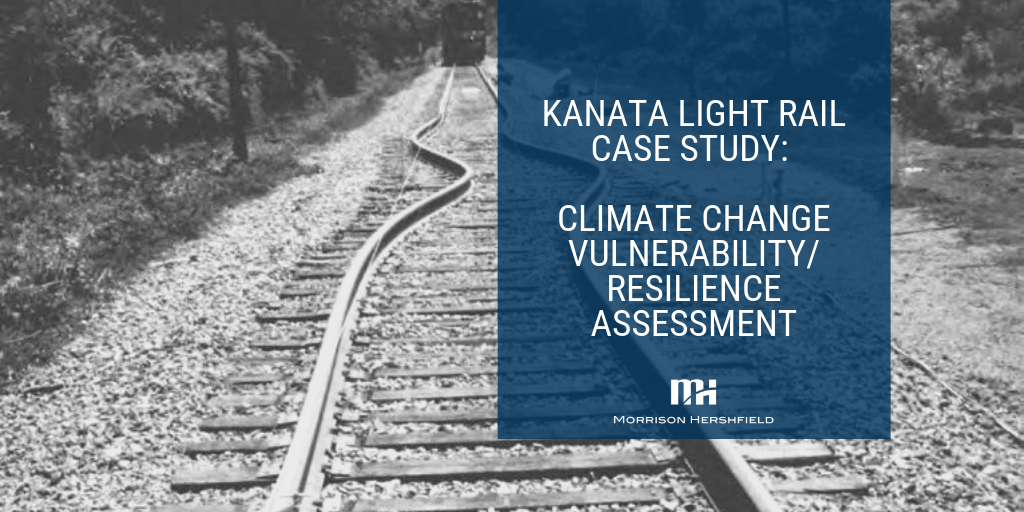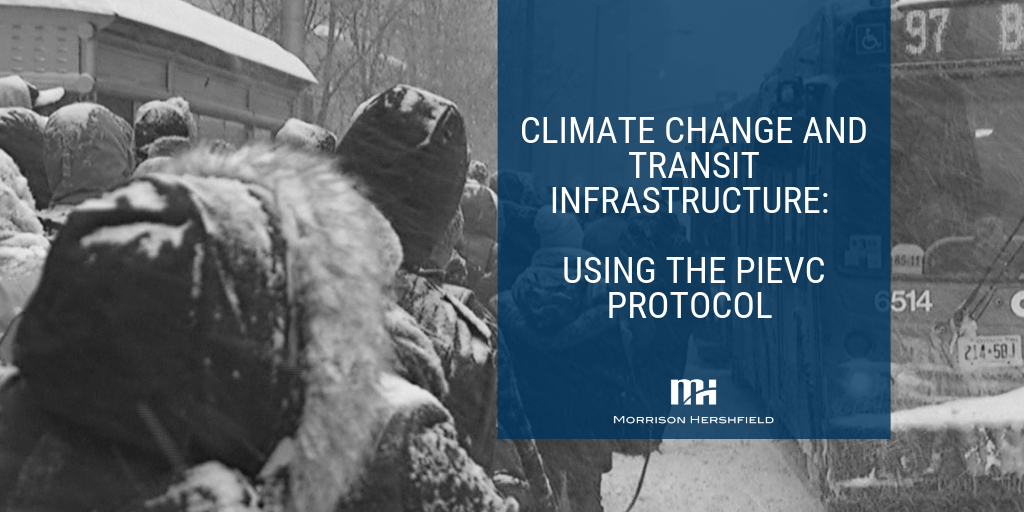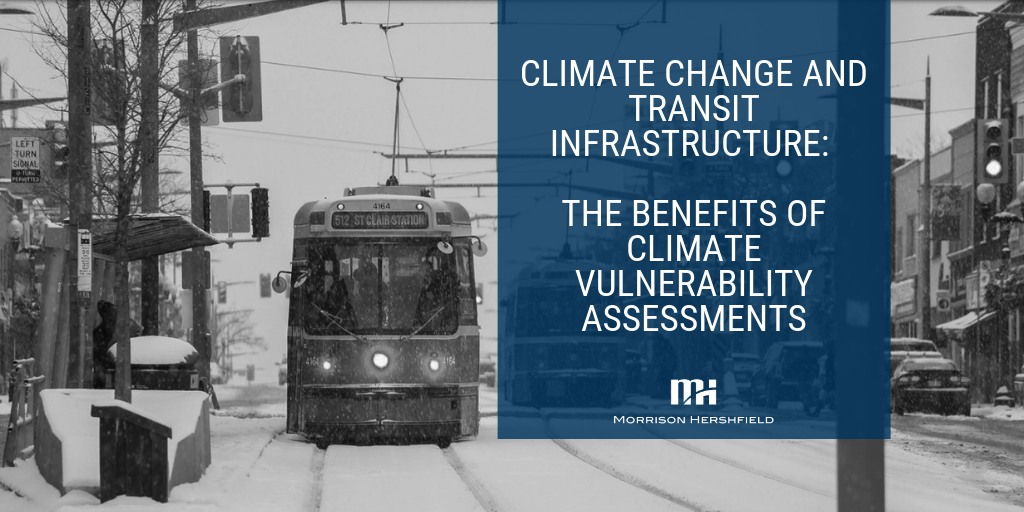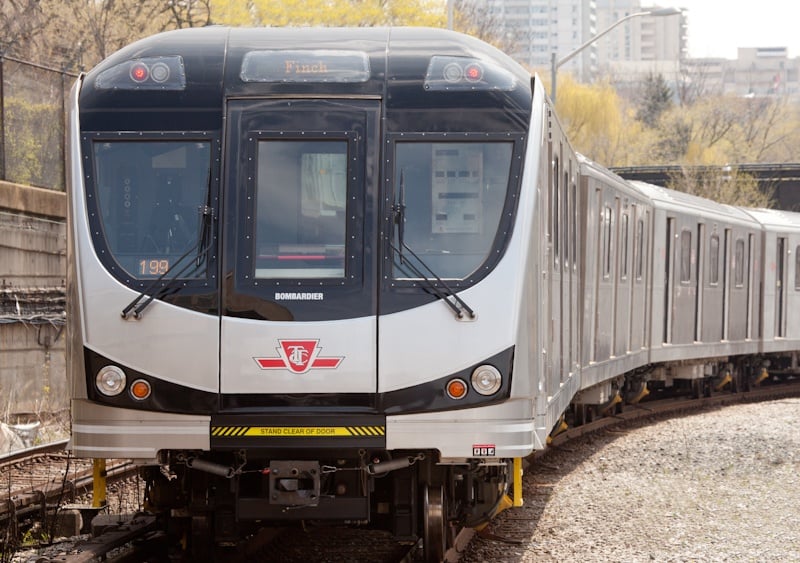As part of this EA Study, Morrison Hershfield was retained to conduct a Climate Change Vulnerability/ Resilience Assessment & Carbon Footprint/ Green House Gas Inventory to consider the potential effects of climate change on this transit infrastructure project and to identify potential adaptation requirements.
Climate Change and Transit Infrastructure: Using the PIEVC Protocol
Engineers are responsible for planning, designing, operating, maintaining and managing public infrastructure. It is critical for engineers to understand and account for the risks and vulnerabilities to this infrastructure that is resulting from the increasing frequency of extreme weather conditions and our changing climate.
Climate Change and Transit Infrastructure: The Benefits of Climate Vulnerability Assessments
Our climate is changing. Now more than ever, we are paying increased attention to the significant risks of climate change on the performance of engineered transit systems and public safety. Engineers, decision makers and other stakeholders are beginning to see the benefits of including climate change adaptation as part of their primary mandates. Vulnerability and risk assessments are becoming important steps to ensuring climate change is considered early in the engineering design, operations and maintenance of civil infrastructure.
Implication of PTTC Policy Shift
Finance Minister Bill Morneau has recently announced the federal government’s intention to phase out its Public Transit Tax Credit (PTTC) effective Jul 1, 2017. The credit, which came into effect on July 1, 2006, allowed regular transit users to reduce their cost of using transit by 15 percent.




